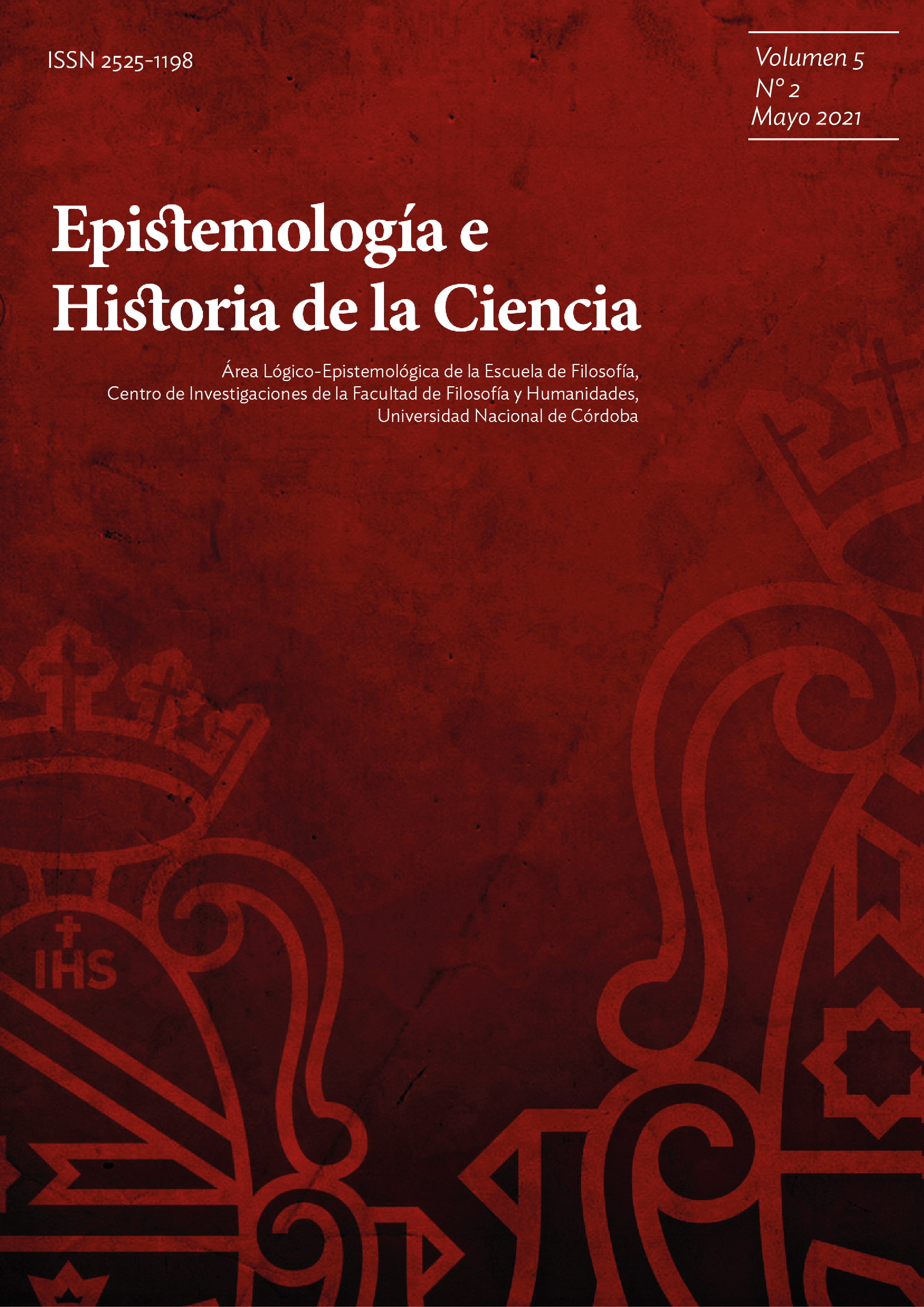Reflections on the Philosophy of Historiography and the Critical Legacy of “Narrativism”
Keywords:
philosophy of historiography, narrativism, historical representation, historiographyAbstract
The last 25 years have seen the consolidation of an approach to philosophy of history under the name of a “philosophy of historiography”. This philosophy involves the analysis of the procedures that make historical interpretations reasonably within an historiographic community of peers, the use of documentary evidence, the debate on inferences, and the assessment of colligatory theses. For the philosophy of historiography, particularly in the version developed by J.-M. Kuukkanen, the “narrativist” constructivism is a particular aspect within a wider comprehension of historians’ practices where the rational argumentation and the use of evidence has priority in the choice between competing interpretations by the historians’ community. The argument here developed shows that the “narrativist insight” loses of sight the critico-cultural dimension of narrativism regarding historical representations and reproduces the dualism between interpretation and epistemology that Frank Ankersmit refered to as the “dilemma of Anglo-Saxon philosophy of history”.
References
Ankersmit, F. (1983). Narrative Logic: A Semantic Analysis of the Historian’s Language. La Haya: Martinus Nijhoff.
Ankersmit, F. (1986). The Dilemma of Contemporary Anglo-Saxon Philosophy of History, History and Theory, 25(4), 1-27.
Ankersmit, F. (1989). Historiography and Postmodernism, History and Theory, 28(2),137-153.
Ankersmit, F. (2005). [Reseña del libro Our Knowledge of the Past: A Philosophy of Historiography de A. Tucker]. The American Historical Review, 110(5), 1476-1477.
Appleby, J., Hunt, L., & Jacob, M. (1994). Telling the Truth about History. Nueva York; Londres: W. W. Norton.
Blackburn, R. J. (2000). The Philosophy of Historiography? History and Theory, 39(2), 263-272.
Clark, C. (2013). The Sleepwalkers: How Europe went to War in 1914. Londres: Allen Lane.
Danto, A. (1965). Analytical Philosophy of History. Cambridge: Cambridge University Press.
Friedländer, S. (Ed.) (2007). En torno a los límites de la representación: El nazismo y la solución final (M. Burello, trad). Bernal: Universidad Nacional de Quilmes.
Goldstein, L. (1976). Historical Knowing. Austin: Texas University Press.
Jenkins, K. (1991). Rethinking History. Londres: Rouledge.
Kellner, H. (1995). Introduction: Describing Redescriptions. En F. Ankersmit & H. Kellner (Eds.), A New Philosophy of History (pp. 1-20). Chicago: Chicago University Press.
Kuukkanen, J.-M. (2015). Postnarrativist Philosophy of Historiography. Londres: Palgrave Macmillan.
Lorenz, C. (2015). Entre filosofía e historia (2 vols.). Buenos Aires: Prometeo Libros.
Martin, R., Scott, J. W., & Strout, C. (1995). [Reseña del libro Telling the Truth about History de J. Appleby, L. Hunt, & M. Jacob]. History and Theory, 34(4), 320-339.
O’Sullivan, L. (2006). Leon Goldstein and the Epistemology of Historical Knowing. History and Theory. 45(2), 204-228.
Paul, H. (2011). Hayden White: The Making of a Philosopher of History. Londres: Polity.
Roth, P. A. (2016). Back to the Future: Postnarrativist Historiography and Analytical Philosophy of History. History and Theory, 55(2), 270-281.
Stone, D. (2017). Excommunicating the Past? Narrativism and Rational Constructivism in the Historiography of the Holocaust. Rethinking History, 21(4), 549-566.
Tucker, A. (2004). Our Knowledge of Past: A Philosophy of Historiography. Cambridge: Cambridge University Press.
Tucker, A. (2009). Introduction. En A. Tucker (Ed.), A Companion to the Philosophy of History and Historiography (pp. 1-6). Chichester: Wiley-Blackwell.
Tucker, A. (2010). Where do we go from Here? History and Theory, Theme Issue 49, 64-84
Vann, R. (1998). The Reception of Hayden White. History and Theory, 37(2), 143-161.
Walsh, W. H. (1954), An Introduction to the Philosophy of History. Londres: Hutchinson University Library.
White, H. (1973). Metahistory: The Historical Imagination in Nineteenth-century Europe. Baltimore: The Johns Hopkins University Press
White, H. (2005). The Public Relevance of Historical Studies: A Reply to Dirk Moses. History and Theory, 44(3), 333-338.
White, H. (2014). The Practical Past. Illinois: Northwesten University Press.
Zammito, J. (2005). Ankersmit and Historical Representation. History and Theory, 44(2), 155-181.
Zoltán, B., & Kuukkanen, J.-M. (2015). Assessing Narrativism, [introducción a Forum: After Narrativism]. History and Theory, 54, 153-161.
Downloads
Published
Issue
Section
License
Copyright (c) 2021 Epistemología e Historia de la Ciencia

This work is licensed under a Creative Commons Attribution-NonCommercial-NoDerivatives 4.0 International License.
En todos los lugares donde aplique, esta obra está bajo una licencia Creative Commons Reconocimiento-NoComercial-SinObrasDerivadas 4.0 .
- Los autores/as conservarán sus derechos de autor y garantizarán a la revista el derecho de primera publicación de su obra, el cual estará simultáneamente sujeto a la Licencia de reconocimiento de Creative Commons que permite a terceros compartir la obra, siempre que se indique su autor y su primera publicación en esta revista.
- Los autores/as podrán adoptar otros acuerdos de licencia no exclusiva de distribución de la versión de la obra publicada (p. ej.: depositarla en un archivo digital institucional o publicarla en un volumen monográfico), siempre que se indique la publicación inicial en esta revista.
- Se permite y recomienda a los autores/as difundir su obra a través de Internet (p. ej.: en archivos digitales institucionales o en su página web) antes y durante el proceso de envío.
- Las licencias de las imágenes de terceros incluidas en los artículos pueden estar sujetas a otros términos; los autores/as son responsables de asegurar la veracidad de su origen, la información de la fuente original provista y su permiso de reproducción en esta publicación, que puede ser exclusivo.







